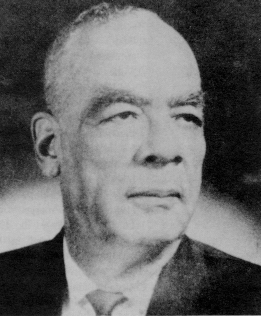Lillard entered law school in 1932, after Z. Alexander Looby and other local black leaders organized Nashville's Kent College of Law. He continued his city job and attended law classes five
 nights
a week, and in 1935 he was graduated from the Kent College of Law.
nights
a week, and in 1935 he was graduated from the Kent College of Law.
In 1936, Lillard passed the bar examinations, but he continued to work at the city garage to support his family. During the next year, however, Lillard received an appointment to Nashville's Fire Engine Company No. 11 at 12th Avenue, North, and Jefferson Street. He drove a fire truck until receiving a disability pension in 1950.
Robert E. Lillard then entered the practice of law on a full-time basis and participated in local black politics. In 1932, he organized the 15th Ward Colored Voters and Civic Club. He persuaded local politicians to pay the $2 poll tax for over one hundred black men and women in the fifteenth ward. He prepared for the councilmanic election for a South Nashville district. In 1951, Lillard entered the predominantly black third district, second ward councilmanic race against the white incumbent, Charles Castleman. Because Castleman received support from Democratic party Mayor Thomas Cummings' administration, white politicians reported'' offered money and jobs to persuade Lillard to withdraw from the election. Lillard responded, "I won't be bought out. I won't be frightened out. You have to beat me out. Another Negro, Daniel West, entered the race (perhaps persuaded by white politicians), split the black vote and force a run-off election between Lillard and Castleman. On May 24, 1951, Lillard won the run-off election and joined Z. Alexander Looby as the first blacks elected to Nashville's city council since 1911.
Lillard served the city council for twenty years, never missing a regular meeting. He served as chairman of several council committees: Public Safety Committee; Special Water Sewer Rate Committee; Special Beer, Wine, and Whiskey Committee; and Public Election Committee. He helped persuade the city to transform Cameron Junior High School into the second high school for local blacks and successfully gained an ordinance to desegregate the Parthenon in Centennial Park. During 1960s, because Lillard believed that a metropolitan form of government would dilute the black voting strength, he opposed the plan to consolidate the city and county governments. Before retiring from the Metro City Council in 1971, Lillard became the first black to serve as Vice Mayor Pro Tem (1967). He made unsuccessful campaigns for vice mayor and councilman-at-large.
Meanwhile, Lillard's political activism and law practice continued to thrive. He gained admission to the federal district court (1955), the U. S. Court of Appeals, the Sixth Circuit Court (1957), and the U. S. Supreme Court (1962). Lillard founded the Tennessee Federation of Democratic Leagues and campaigned for the election of President John F. Kennedy in 1960. He refused the offer to become Nashville's Assistant U. S. Attorney; however, in 1964 and 1967, Lillard was appointed to the state Tennessee Board of Pardons and Paroles by two Democratic governors. In March of 1978, the governor appointed Lillard as judge of the First Circuit Court, Tenth Judicial District. On August 31, 1978, Lillard retired from the bench.
Robert E. Lillard died on November 6, 1991. He was funeralized on November 11 at the Seay-Hubbard United Methodist Church and interred in Nashville's Greenwood Cemetery.